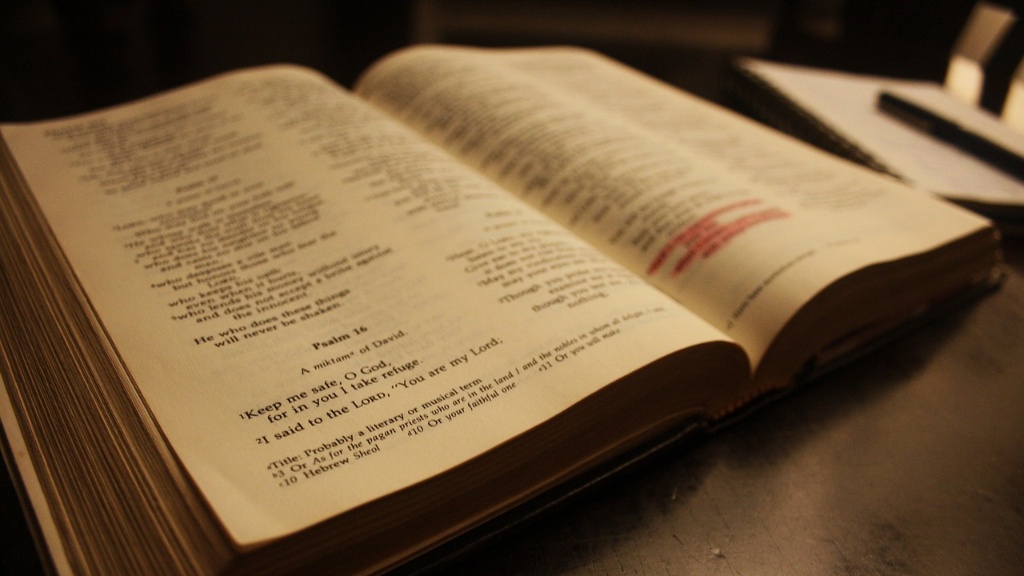Purgatory is a concept found in the Bible, but it is often misunderstood. To properly understand it, one must look closely at its origin and meaning. Although there is no specific mention of purgatory in Scripture, other passages provide insight into the concept. In the Bible, purgatory is a place of spiritual purification and redemption before entering the kingdom of God. This can be seen in several verses, such as 2 Peter 3:7-9, “But by the same word the heavens and earth that now exist are reserved for fire until the day of judgment and destruction of the ungodly. But do not forget this one thing, beloved, that with the Lord one day is like a thousand years, and a thousand years like one day. The Lord is not slow to fulfill his promise as some count slowness, but is patient toward you, not wishing that any should perish, but that all should reach repentance.”
The idea of purgatory is drawn from the writings of the ancient Church Fathers, including St. Augustine and St. Thomas Aquinas. They believed that the souls of those who have died in a state of grace (those who have not committed a mortal sin) must pass through this place of suffering and purification before they can enter the kingdom of God. This is viewed by many as a refinement process, where God meets us in the depths of our being and helps us become truly His. This understanding is in line with the teachings of the Catholic Church, which maintains that purgatory is an intermediate state of existence, where souls begin to be purified from all the sins and imperfections that kept them from Heaven during their earthly life.
The idea of purgatory is further evidenced in Revelation 21:27, “And nothing unclean shall enter it, nor any one who practices abomination or falsehood, but only those who are written in the Lamb’s book of life.” The Bible also speaks of a “second death” in Revelation 20:12-14, “And I saw the dead, great and small, standing before the throne, and books were opened. Then another book was opened, which is the book of life. And the dead were judged by what was written in the books, according to what they had done. And the sea gave up the dead who were in it, Death and Hades gave up the dead who were in them, and they were judged, each one of them, according to what they had done.”
Thus, we can see that purgatory is seen as a place of cleansing and refinement, before the final day of judgment. It is also a place of hope, as those who are in need of repentance are offered the opportunity to repent and find salvation, and ultimately, to enter the Kingdom of Heaven. Therefore, the Bible presents purgatory as a place of spiritual growth and cleansing, and ultimately of hope. It is a place where those who are not quite ready for Heaven, but who have not committed a mortal sin, can find a second chance to gain salvation through the grace of God.
The Purpose of Purgatory
Purgatory serves to purify the soul in preparation for Heaven. This is important because it is believed that when people die, they still carry within them the effects of the sins they have committed in life. This can be seen in Romans 8:1, “Therefore, there is now no condemnation for those who are in Christ Jesus.” The purpose of purgatory is to allow souls to be purged of all their sins and be made worthy to enter Heaven. It is also believed that souls in purgatory can intercede and pray for those still living, thus helping them to repent and attain salvation.
The Catholic Church states that purgatory is “a state which is said to be an intermediate one between heaven and hell, in which souls, who have died in the friendship of God, but with minor imperfections, can be purified from their sins and prepared to enter the Kingdom of God.” This is similar to the idea of a second chance for those who have died in a state of grace, but is not quite sinful enough to be condemned to Hell.
Purgatory is also seen in the Bible as a place where souls who have sinned can be purified. This is seen in 1 Corinthians 3:15, “If anyone’s work is burned up, he will suffer loss, though he himself will be saved, but only as through fire.” This verse speaks of a process of purification, where the sinner is cleansed of their sins and able to enter Heaven. Thus, we can see that the Bible speaks of purgatory as a process of spiritual purification and renewal, which is necessary for entry into the Kingdom of Heaven.
Purgatory & Purgatorial Fire
The concept of purgatory is often connected with the idea of “purgatorial fire,” which is seen in 1 Corinthians 3:15. This is the belief that sinners are subject to some form of fire, either in this life or after death in the afterlife, to purify them from their sins. This is in keeping with the idea that purgatory is a place of refinement and purification, and is symbolic of the suffering and spiritual transformation that occurs when a sinner repents and is made worthy for Heaven.
The Catholic Church teaches that purgatorial fire is not physical, but rather “of the soul,” and is “the purifying fire of love that operates as the souls journey to Heaven.” This is in keeping with the idea that purgatory is a place of suffering and spiritual growth that leads to spiritual transformation and bliss.
Although there is no specific mention of purgatorial fire in the Bible, many Christians view it as a source of spiritual illumination. This is in keeping with the idea that purgatory is a place of spiritual purification and growth, and in which the sinner is purified through their sufferings and the presence of God’s love.
The Debate Over Purgatory
The concept of purgatory has been a subject of debate among Christians for centuries. Protestants, in particular, reject the idea of purgatory, favoring the belief that sinners are saved solely on the basis of Jesus’ death and resurrection. On the other hand, Catholics and Orthodox Christians accept the idea of purgatory as a place where sinners can be purified and forgiven, offering them a second chance at salvation.
Thus, the debate over purgatory ranges from the theological to the practical. For example, Protestants reject the idea of praying for the souls of the deceased in purgatory, while Catholics find the practice to be a source of comfort and solace. In addition, Protestants reject the concept of indulgences, or the remission of temporal punishment for sins, while Catholics teach that indulgences are permissible for those in purgatory.
In the end, the debate over purgatory boils down to a disagreement over doctrine. Whether one accepts or rejects the idea of purgatory, it is clear that the Bible speaks of a place, or realm, in which sinners can find redemption and salvation. Thus, it is up to the individual to decide whether they believe in the concept of purgatory, or not.
Conclusion & Summary
In conclusion, the Bible speaks of purgatory as a place of spiritual purification and redemption, where sinners can find a second chance at salvation. It also speaks of a purgatorial fire that purifies and transforms sinners. The concept of purgatory has been a subject of debate among Christians, with Protestants rejecting it and Catholics and Orthodox Christians accepting it. Ultimately, the decision of whether to accept or reject the idea of purgatory is up to the individual.
Rituals Connected with Purgatory
In the Catholic Church, there are a number of rituals and practices connected with purgatory. These include praying for the souls of the deceased, offering indulgences, and celebrating Masses for the repose of the souls in purgatory. This is in keeping with the belief that those in purgatory can intercede for those still living, and that those still living can help them in their journey to Heaven.
The Church also teaches that prayer and good works can help the souls in purgatory. This is in line with the idea that prayer and good works are necessary for spiritual growth and transformation. Moreover, prayers offered at Masses or other liturgical services can help the souls in purgatory, especially when they are offered with devotion and sincerity.
In addition, indulgences can be applied to the souls in purgatory. This is a form of prayer by which temporal punishments for sins may be reduced or removed. This is based on the belief that God grants forgiveness for certain sins, and that indulgences help to reduce or remove the temporal punishments due to the sins.
The Catholic Church also teaches that the souls in purgatory can benefit from spiritual works of mercy, such as almsgiving. This is based on the belief that giving alms can help purify and refine us, as well as help to bring us closer to God.
Role of the Priest in Purgatory
In the Catholic Church, the role of the priest is essential in invoking the assistance of the souls in purgatory. This is done through the offering of Masses, prayers, and other sacraments. The priest’s role is to lead the faithful in prayer, and to pray for the souls in purgatory.
The priest also has a pastoral role in assisting the suffering souls in purgatory. This is done through the offering of absolution, intercession, and other spiritual works. The priest also has the responsibility to lead the faithful in prayer, and to help them grow in their relationship with God.
Furthermore, the priest has the duty to ensure that the souls in purgatory receive their proper spiritual and temporal care. This is done through the offering of Masses and other spiritual works for their benefit, as well as through the distributing of alms and other devotionals for the benefit of the souls in purgatory.
In this way, the priest plays an essential role in invoking the assistance of the souls in purgatory, and in offering them spiritual and temporal care. This is in keeping with the belief that the priest, like all Christians, are called to serve and to intercede for the souls in purgatory.
Final Thoughts on Purgatory
In many ways, the idea of purgatory has been a source of debate, controversy, and confusion for centuries. However, the Bible provides insight into the concept of purgatory, and speaks of it as a place of spiritual purification and redemption before entry into the Heavenly Kingdom. Ultimately, the decision of whether to accept or reject the idea of purgatory is up to the individual. Nevertheless, the concept of purgatory serves as an important reminder of the need for repentance and redemption.





